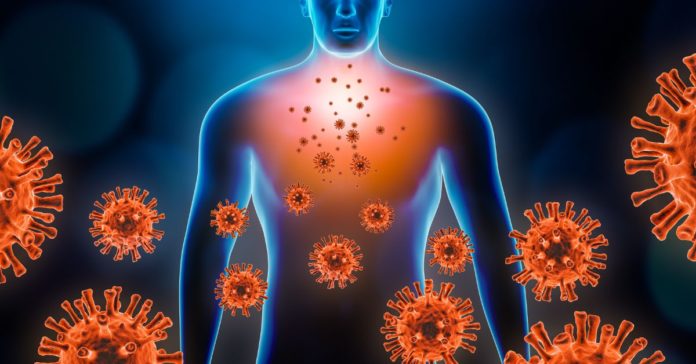Overview
Pneumonitis is a common health condition that causes inflammation of the lungs. Unlike pneumonia, it is a non-infectious condition. Pneumonia too is a type of pneumonitis because the infection causes inflammation. However, the term Pneumonitis, usually refers to non-infectious causes of lung inflammation.
Allergic reactions could be a potential cause. Breathing problems are some of the common symptoms of pneumonitis.
About Pneumonitis
There are many airborne irritants found in the environment. When you inhale these irritants, your body’s allergic reaction may lead to inflammation of the tiny air sacs or alveoli in your lungs. This health condition is also known as hypersensitivity pneumonitis. If left untreated, pneumonitis can lead to dangerous effects on health.
What are the signs and symptoms of pneumonitis?
Here are some of the common signs that you may have pneumonitis:
- Breathing problems
- Shortness of breath
- Persistent cough
- Constant fatigue
- Loss of appetite
- Unexpected weight loss
- Fever
- Dry cough
- Chills
- Headaches
- Clubbing of fingers
When to see a doctor?
If you experience the symptoms above of pneumonitis and fever, it is best to consult a doctor and start treatment.
Call 1860-500-1066 to book an appointment
What causes Pneumonitis?
Pneumonitis occurs when an irritant leads to tiny air sacs (alveoli) in your lungs becoming inflamed. This inflammation makes it difficult for oxygen to pass through the alveoli into the bloodstream.
Here are some of the common irritants that are responsible for pneumonitis:
- Mold: When you repeatedly expose yourself to mould, it may cause irritation of the lung. Certain conditions triggered by mold exposure are also known as farmer’s lung or hot tub lung.
- Excessive use of air conditioning: Molds and bacteria thrive in a humid and moist environment. Excessive use of air conditioning is a perfect environment for mold and fungi to grow. Inhaling air with these irritants leads to inflamed lungs, also known as humidifier lung (HL).
- Grains and farms: If you work on a farm or deal with grains, you may have a high potential of developing it. Hay and mold can cause inflammation and breathing issues.
- Bird droppings may also cause pneumonitis.
- Furry animals, contaminated food items are also some of the common culprits that lead to allergic reactions and pneumonitis.
- Smoking and industrial pollutants also can put you at risk of having inflamed lungs and breathing issues.
- Drugs: Many drugs can cause pneumonitis, such as some antibiotics, many types of chemotherapy drugs and medicines which keep your heartbeat regular. An overdose of aspirin may cause pneumonitis.
- Radiation treatments: A few individuals who undergo radiation therapy to the chest, like for breast or lung cancer, may develop pneumonitis.
What are the effective treatment options for pneumonitis?
Identifying the environmental irritant that causes this health condition plays a crucial role in dealing with pneumonitis. Pay attention to things that may flare up your symptoms.
There are 2 common treatment options in pneumonitis:
- Steroids: If you experience severe pneumonitis, the doctor may prescribe steroids to reduce inflammation. However, excessive use of steroids can cause side effects.
- Oxygen therapy: Oxygen therapy is a popular choice of treatment in case of breathing problems. It involves breathing through an oxygen mask.
How to prevent pneumonitis?
As pneumonitis is a non-infectious form of lung inflammation, vaccinations are not effective preventive measures. Identifying and avoiding irritants that trigger your pneumonitis is the best preventive measure. Keep your surroundings clean and mould-free. Avoid excessive use of air-conditioning.
Conclusion
Pneumonitis needs to be treated with the right diagnosis and care. Untreated pneumonitis can damage the entire lung. Avoiding exposure to irritants can help the lungs to heal from inflammation.
Frequently Asked Questions (FAQs)
Can exercise help with pneumonitis?
Breathing exercises can help to improve lung function and breathing capacity. Deep breathing techniques can also help to manage shortness of breath.
Is pneumonitis curable?
In most cases, acute cases of hypersensitivity pneumonitis can go away without any treatment when you are no longer exposed to the potential irritants.
Can you reverse the effects of pneumonitis?
If diagnosed and treated at early stages, the effects of pneumonitis can be reversed. However, untreated pneumonitis may cause irreversible scarring in the lungs.


















